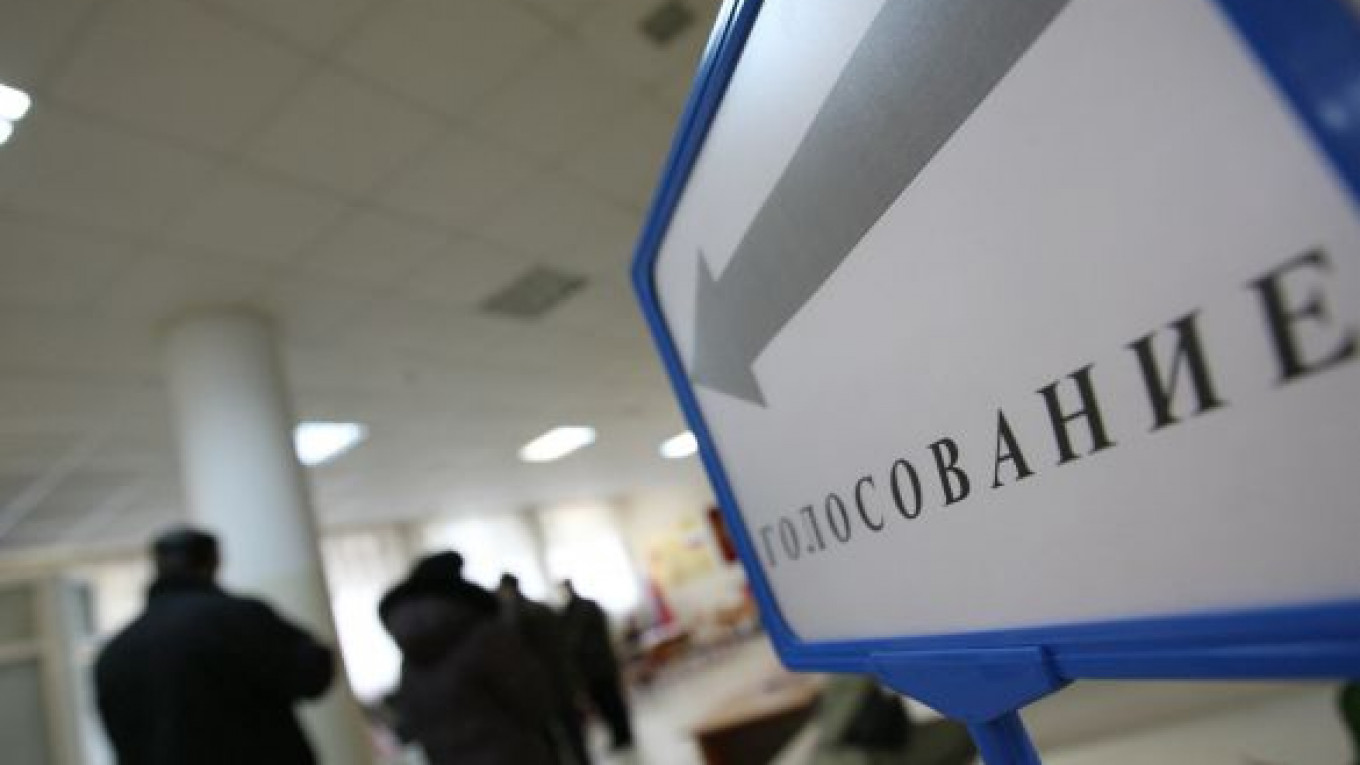President Vladimir Putin on Wednesday signed a law introducing a single voting day for regional and federal elections, a measure that opposition politicians said was illegal and would benefit the ruling party.
Meanwhile, the Central Elections Commission proposed restrictions on how people can take photographs and make video recordings at polling stations ahead of upcoming regional elections.
The law creating a single voting day stipulates that the two days in early March and October when regional and municipal elections are currently held be replaced with a single day: the second Sunday in September.
In years when both State Duma elections and regional and municipal elections are planned, the latter two will be held together with the Duma vote in early December, according to a copy of the law posted on the Kremlin website.
Federation Council Speaker Valentina Matviyenko of United Russia has said the single voting day would reduce state expenses for elections and bring more people to the polls.
But Sergei Mitrokhin, leader of the liberal Yabloko party, said that voting in September will make it harder for opposition parties to campaign, since they will have to stump in August, when many people are on vacation.
Campaigning is not so important for United Russia, he said, because it will mobilize its voters with the help of the “administrative resource” anyway.
The term “administrative resource” is often used to refer to the ruling party’s use of state resources, including state-controlled mass media outlets, budget funds, and officials’ privileges, to reach its political goals.
Vladimir Ryzhkov, a co-leader of the opposition Republican Party of Russia-The Party of People’s Freedom, or RPR-Parnas, said by telephone that he believes the law is unconstitutional because “federal legislators interfered with the powers of the regions and municipalities.”
Also on Wednesday, it was reported that the Central Elections Commission had proposed granting elections officials the right to put limitations on the creation and use of photographs and videos produced at polling places ahead of regional elections on Oct. 14.
The commission could give elections officials the right to restrict photography and video-recording at polling stations to certain areas, Kommersant reported Wednesday.
Current laws allow accredited vote monitors and reporters to take photographs and record video at polling stations any time and anywhere except in the voting booths.
Officials could also be allowed to prohibit observers from taking close-up photos and videos and from publishing them without the consent of those who are filmed.
Lilia Shibanova, executive director of independent elections watchdog Golos, said the new photography and video-recording rules would make it more difficult to document violations.
“If we need to record [ballot] stuffing, it is useless to ask for permission. No one will give it,” Shibanova said by telephone.
Related articles:
A Message from The Moscow Times:
Dear readers,
We are facing unprecedented challenges. Russia's Prosecutor General's Office has designated The Moscow Times as an "undesirable" organization, criminalizing our work and putting our staff at risk of prosecution. This follows our earlier unjust labeling as a "foreign agent."
These actions are direct attempts to silence independent journalism in Russia. The authorities claim our work "discredits the decisions of the Russian leadership." We see things differently: we strive to provide accurate, unbiased reporting on Russia.
We, the journalists of The Moscow Times, refuse to be silenced. But to continue our work, we need your help.
Your support, no matter how small, makes a world of difference. If you can, please support us monthly starting from just $2. It's quick to set up, and every contribution makes a significant impact.
By supporting The Moscow Times, you're defending open, independent journalism in the face of repression. Thank you for standing with us.
Remind me later.






